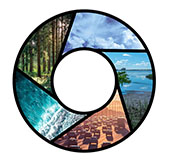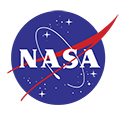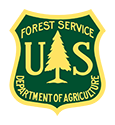Webinar Series 'From Science to Solutions: The State of the Carbon Cycle' (Feb 28-June 11)
The U.S. Carbon Cycle Science Program Office, in partnership with OneNOAA Science Seminar Series organized a series of free webinars during the Spring of 2019.
'From Science to Solutions: The State of the Carbon Cycle'
A special public engagement series from the Second State of the Carbon Cycle Report (SOCCR2) team of carbon experts
This series includes seminars scheduled for each Tuesday, 12-1pm ET, February 26 to June 11, 2019, and is focused on communicating the Second State of the Carbon Cycle Report findings in relation to current and broader societal impacts and solutions.
All live webinars were free and can be accessed remotely, broadcasted from NOAA, Silver Spring, SSMC4 - Large Conference Room - 8150. Speakers delivered their talks in person at the venue (when specified on the schedule) or remotely.
Sponsors
U.S. Carbon Cycle Science Program Office/UCAR and NOAA's National Ocean Service Science Seminar.
The webinar series was led by Dr. Gyami Shrestha, Director of the U.S. Carbon Cycle Science Program Office and Tracy Gill, Coordinator of NOAA's National Ocean Service Science Seminar Series.
Slides (PDFs) of the presentations
You may view PDFs of the presentations and download a poster (A4 size) with links to all the slides and recordings below.
| # | 2019 Dates 12-1 pm ET | Title of SOCCR2 Seminar, Presenters and Affiliations (Seminar title link opens as calendar invitationwith presentation abstract and speaker bio) | Links to Slides (PDF) & Recordings |
| 1 | February 26 | Two talks: From Science to Solutions: The State of the Carbon Cycle Assessment Two seminars to kick-off the series: 1. 'Carbon Cycle Science across NOAA: Discussing the Carbon Cycle Interagency Working Group (CCIWG) and SOCCR2 science and societal relevance to NOAA’s mission' by James Butler (Speaker), Director, Global Monitoring Division, ESRL/OAR/NOAA (presenting remotely) 2. 'From Science to Solutions: The State of the Carbon Cycle Assessment' by Gyami Shrestha (Speaker), Director, U.S. Carbon Cycle Science Program Office (presenting in person at NOAA, Silver Spring) | |
| 2 | March 5 | Rising Carbon Dioxide’s Effects on Land and Ocean, by Sarah Cooley (Speaker), Director, Ocean Acidification Program at Ocean Conservancy & David Moore, Associate Professor, University of Arizona. Presenting remotely. | |
| 3 | March 12 | by Grant Domke (Speaker), Research Scientist, USDA Forest Service; Chris Williams, Land surface hydrologist and Terrestrial ecosystem ecologist, Associate Professor of Geography, Adjunct Associate Professor of Biology, Clark University; and Randy Kolka (Speaker), Research Soil Scientist, USDA Forest Service N. Research Station, and Carl Trettin, Research Soil Scientist USDA Forest Service S. Research Station. Presenting remotely. | |
| 4 | March 19 | Carbon Cycling in North America’s Land-Ocean Aquatic Continuum, by Ray Najjar, Penn State University. Presenting remotely. | |
| 5 | March 26 | All About Carbon: An Overview of the State of the Carbon Cycle Report, by Melanie Mayes, Senior Staff Scientist, Oak Ridge National Laboratory. Presenting remotely. |
|
| 6 | April 2 | Carbon Cycle of North America and Research Needs for Enhancing CO2 Removal, by Richard A. Birdsey, Senior Scientist, Woods Hole Research Center. Presenting remotely. | |
| 7 | April 9 | The Social Implications of Pervasive Carbon, by Elizabeth L Malone, Independent Researcher. In person presentation at NOAA, Silver Spring. | |
| 8 | April 16 | State of Carbon in Soils and Agriculture: Linking North American Science to Global Efforts, by Nancy Cavallaro, National Program Leader, Soils Water & Global Change Programs, National Institute of Food and Agriculture, USDA. Remote presentation. | |
| 9 | April 23 | Practices to Contribute to Carbon Management and Climate Adaptation, by Maureen McCarthy, Tahoe and Great Basin Program Director and Project Director, Water for the Seasons, University of Nevada-Reno. Presenting remotely. | |
| 10 | April 30 | Global carbon budget accounting following the State of the Carbon Cycle Report: The Regional Carbon Cycle Assessment and Processes study (RECCAP-2), by Ben Poulter, Research Scientist NASA Goddard Space Flight Center. Remote Presentation. | |
| 11 | May 7 | An overview of Global Carbon Cycle: Where are the Gaps in our Understanding? by Lori Bruhwiler, ESRL/OAR/NOAA and 'Summary of the State of the Carbon Cycle Report-2, Chapter 8: Observations of CO2 and CH4' by John B. Miller, Global Monitoring Division, ESRL/OAR/NOAA. Presenting remotely. | |
| 12 | May 14 | Scientific Community Engagement for Carbon Cycle Researchers, by Libby Larson, North American Carbon Program (NACP) Coordinator and Senior Support Scientist, NASA Carbon Cycle & Ecosystems Office, NASA Goddard Space Flight Center. Presenting remotely. | |
| 13 | May 21 | Where does all the carbon go? Piecing together the North American carbon puzzle from a synthesis of top-down and bottom-up estimates, by Rodrigo Vargas (Speaker), University of Delaware and Daniel J. Hayes, University of Maine. Remote presentation. | |
| 14 | May 28 | Future of North American Carbon Cycle by Deborah Huntzinger (Northern Arizona University) & Abhishek Chatterjee (NASA Global Modeling and Assimilation Office and Universities Space Research, Maryland). Presenting Remotely. | |
| 15 | June 4 | North American Energy System Contributions to the Global Carbon Cycle: Will the cycle be unbroken? by Peter J. Marcotullio, Professor of Geography, Director of the Institute for Sustainable Cities, Hunter College, City University of New York | |
| 16 | June 11 | Two talks 'Urban Carbon & Cows, Dirt, Smoke, Wate: A State of Carbon Story' Talk #1. Urban Carbon by Kevin Gurney, Northern Arizona University Talk #2. Cows, Dirt, Smoke, Water: A State of Carbon Story by Gyami Shrestha, U.S. Carbon Cycle Science Program and UCAR CPAESS
|
Seminar 1 in the Series: From Science to Solutions: The State of the Carbon Cycle, the 2nd State of the Carbon Cycle Report (SOCCR2)
When: Tuesday, February 26, 12-1pm EST
Where: Via webinar (see login info) or for NOAA folks in Silver Spring, SSMC4, Rm 8150
Speakers
James Butler,Director, NOAA's Office of Oceanic and Atmospheric Research, Earth System Research Laboratory, Global Monitoring Division. Presenting from Boulder, Colorado, and
Gyami Shrestha, Director, U.S. Carbon Cycle Science Program Office, presenting at NOAA SIlver Spring.
Co-authors:Nancy Cavallaro, USDA NIFA National Program Leader and Zhiliang Zhu, USGS, Chief, Biologic Carbon Sequestration Program
12:05pm-12:30pm ET, Part 1: Carbon Cycle Science across NOAA: Discussing the 'Carbon Cycle Interagency Working Group'(CCIWG) and SOCCR2 science and societal relevance to NOAA’s mission, by James Butler
12:30-12:55pm ET, Part 2: ‘From Science to Solutions: The State of the Carbon Cycle Assessment, by Gyami Shrestha
Abstract
What was the fate and impact of carbon in atmospheric, aquatic and terrestrial systems across North America over the last decade? How is it projected to grow and impact future climate change, given current scenarios and how can we harness current scientific and socio-economic advances in our knowledge of the carbon cycle at the intersection of human dimensions to better manage it in order to reduce future climate change risks? The just released Second State of the Carbon Cycle Report (#SOCCR2, 2018) tells you all about it. SOCCR2 is a Sustained Assessment series special product of the U.S. Global Change Research Program, spanning 4 sections, 19 chapters and 7 appendices across 878 pages, developed by a 200+ member international team who produced over 6 formal drafts reviewed over 6 times, including by the U.S. National Academy of Sciences and the general public before final review and released by the 13 agencies of the USGCRP the same day as the 4th National Climate Assessment. To kick-off this special One NOAA SOCCR2 Seminar Series ‘From Science to Solutions: The State of the Carbon Cycle Assessment’, this talk will provide an overview of the multiyear, multi-step, interagency assessment formulation and development process. A snapshot of the many scientifically significant and societally relevant key findings, as a preview of the upcoming SOCCR2 OneNOAA Seminar talks the following Tuesdays (12-1 pm ET, Feb 26-May 28) will also be provided. This talk will also focus on potential carbon management strategies along with trade-offs and co-benefits of certain actions, to showcase the carbon cycle science-derived climate change actions and solutions that decades of the interdisciplinary research has rendered possible. SOCCR2 can be downloaded here.
About the Speakers
Jim Butleris Director of Global Monitoring at NOAA’s Earth System Research Laboratory (NOAA/ESRL) in Boulder, Colorado, where he has conducted research on climate forcing and ozone depletion for over 30 years. In his current capacity, Dr. Butler oversees the nation’s continuing measurements of atmospheric constituents that affect the world’s climate, including greenhouse and ozone-depleting gases, aerosols, and surface radiation. Dr. Butler’s published works address the distribution and cycling of gases in the atmosphere, their production and consumption by the ocean, their exchange across the air-sea interface, their distribution in polar snow, and methods for their analysis. He is a regular contributor to international documents on stratospheric ozone depletion, atmospheric chemistry, and global warming.
Dr. Gyami Shrestha, directs the US Carbon Cycle Science Program Office activities for the Carbon Cycle Interagency Working Group (CCIWG), such as the Second State of the Carbon Cycle Report (SOCCR2) which she just completed as Lead Development Advisor & Manager with a 200+ multinational team, as a lead editor, lead author & contributor on multiple chapters (See carbon2018.globalchange.gov). Interfacing with scientists & funders, Gyami supports, conceptualizes, leads & co-leads, community & interagency US Government programs & activities around carbon & climate change. Her domestic & international portfolio helps to catalyze coordinated scientific advances in the context of US Government priorities in collaboration with the CCIWG, UCAR, USGCRP, White House & community. Prior to joining the Program in 2011, she acquired a decade of research, management & consulting experience in NGOs/INGOs, academia & consulting. Previously, Gyami recruited & managed research proposal review panels for King Abdullah City for Science & Technology (KACST) via the American Association for the Advancement of Sciences (AAAS) & completed degrees in Environmental Systems (incl. Air Quality & Health Training Certificate) & Soil Science & Water Resources with Restoration Ecology Certificate. As Science & Technology Policy Fellow at the US National Academy of Sciences, Gyami contributed to research, writing & review panel recruitment to finalize the landmark America's Climate Choices Advancing the Science of Climate Change Report. Prior research includes terrestrial carbon with a focus on pyrolized/black carbon, carbon sequestration, land reclamation & restoration; stakeholder analysis & decision-support tool development for rainwater harvesting, improved cookstoves & gender mainstreaming via participatory tech transfer in rural Nepal and South Asian network building. She also served on Advisory Boards of the University of California & the Nepalese Children's Education Fund.




